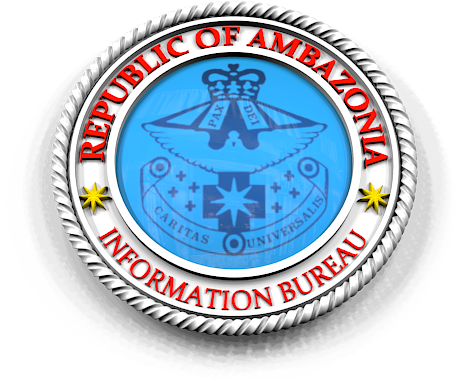Training of a Skilled National Workforce
The economic model which Government of Ambazonia is proposing for requires that the country should develop a highly trained workforce. The educational system of the Republic of Ambazonia shall be conceived on the basic goals of training an educated and skilled workforce which is able to handle the challenges of the emerging world economy. This shall be achieved by adopting the following strategy for the three levels of the educational system:
- Universal Basic Educations (Free): In keeping with the Millennium Development Goals (MDGs) set by the United Nations, the objective of the government shall be to provide universal and compulsory primary education to all children of school going age (6-12). This is an obligation of the state and the state shall make the necessary investments in infrastructure and train the teachers in order to ensure that all regions of the country have the facilities needed to attain the MDGs. Foreign assistance shall be strongly solicited in order to meet the commitment to providing UBS.
- Compulsory Secondary Education (Not Free): The government shall also impose secondary education as a basic requirement for children throughout the territory of Ambazonia between the ages of 12-18. However for this level of education, the government shall pursue a policy of partnership with the private sector by licensing secondary education to private sector operators including NGOs and religious organizations. All licensed operators shall however be required to operate educational institutions with boarding facilities. Existing confessional schools shall be given strong incentives to expand their intake capacity to higher levels. The percentage of partnership and load sharing between the public and private sector shall be driven by the resources that are available to the state to pay for its own share in terms of cost of infrastructure and teaching costs.
Standard Testing for Secondary Graduates: In order to be sure about the quality of secondary education which is being offered in public and private institutions, it shall be a standard requirement that all graduates of secondary institutions should take a standard test to assess their quantitative as well as reading and comprehension skills. This test shall be administered by a well-established foreign testing service in order to be absolutely sure about its objectivity and neutrality. The results shall be used to assess the teaching quality of the various secondary institutions and serve the dual purpose of an entry requirement into tertiary institutions in the Republic of Ambazonia as well as in foreign institutions. It shall also serve the purpose of bench-marking the quality of secondary education in Ambazonia against the rest of the world. The testing cost shall be financed by the Government of Ambazonia. - Quality and Competitive Tertiary Education (Fee Paying): All post secondary education in the Republic of Ambazonia shall be placed in the hands of the private sector. However, the University of Buea shall remain in the hands of the government. The primary role of the government shall be to ensure that entry into tertiary institutions should be driven by competition for the limited number of places that shall be dependent on the intake capacity of each institution.
However, in order to ensure that the intake capacity for tertiary institutions is adequate, the government shall identify suitable locations for the construction of new tertiary institutions throughout the country. The title deeds for land in such locations shall be perfected by the government and given for a symbolic price to groups which shall be licensed by the government to construct the infrastructure required to operate a tertiary institution. Foreign organizations and corporate bodies from various corners of the world shall be invited to invest in the education sector in order to develop a skills capability in areas where they have already demonstrated their experience in other parts of the world. In order to ensure quality, all tertiary institutions shall be fee-paying institutions which shall be free to attract foreign students on a fee-paying basis as well.
In order to enable the government to play its own role in the achievement of the national goals in skills development, the Government of Ambazonia shall devote between 3-5% of the GDP or 20% of the national annual budget to education, whichever is the higher. Experience has shown that developing countries which have invested heavily in education (Malaysia, Singapore, Hong Kong, Taiwan, South Korea, Mauritius etc) by devoting a large percentage of their GDP to education have achieved very rapid rates of economic development.
Policy on Languages
Language is an important tool of communication. The economic model which is being planned for the Republic of Ambazonia requires that the entire country should be highly extroverted. In order to achieve this goal, the strategic use of language shall be one of the key instruments of this extroverted posture. In order to achieve this goal, English shall serve as the languages of instruction at all levels of education from primary to tertiary education. However, French shall be a compulsory subject to be taught from Primary School to Secondary School. This strategy is consistent with the geographical reality of having both French-speaking and English-speaking neighbors. Notwithstanding this language policy in education, English shall be the official and national language of business, government, the judiciary.
However for secondary education other international languages shall be introduced in which students must acquire basic proficiency as a graduation requirement. There shall be a requirement to attain basic proficiency in one other major modern language as a graduation requirement or secondary education. The modern languages to be introduced for this language program shall include: German, Chinese, Japanese and Russian. These languages have been selected because of the role that the respective countries are expected to play in world economy in the years to come.
The modalities of introducing these modern languages into the educational curriculum of the Republic of Ambazonia shall be defined by the Ministry of Education. The diplomatic missions of the respective countries shall be invited to provide teaching materials that can be used to teach their languages in the various secondary institutions. Language teachers shall be invited from the respective countries under cultural cooperation programs to provide teaching.
Similarly, there shall be a requirement to attain basic proficiency in one major African language as a graduation requirement or secondary education. The African languages that shall be introduced for this language program shall include: Arabic, Hausa, and Swahili. Language teachers shall be invited from all qualified countries to provide teaching. The modalities of introducing these African languages into the educational curriculum of the Republic of Ambazonia shall be defined by the Ministry of Education & Training.


